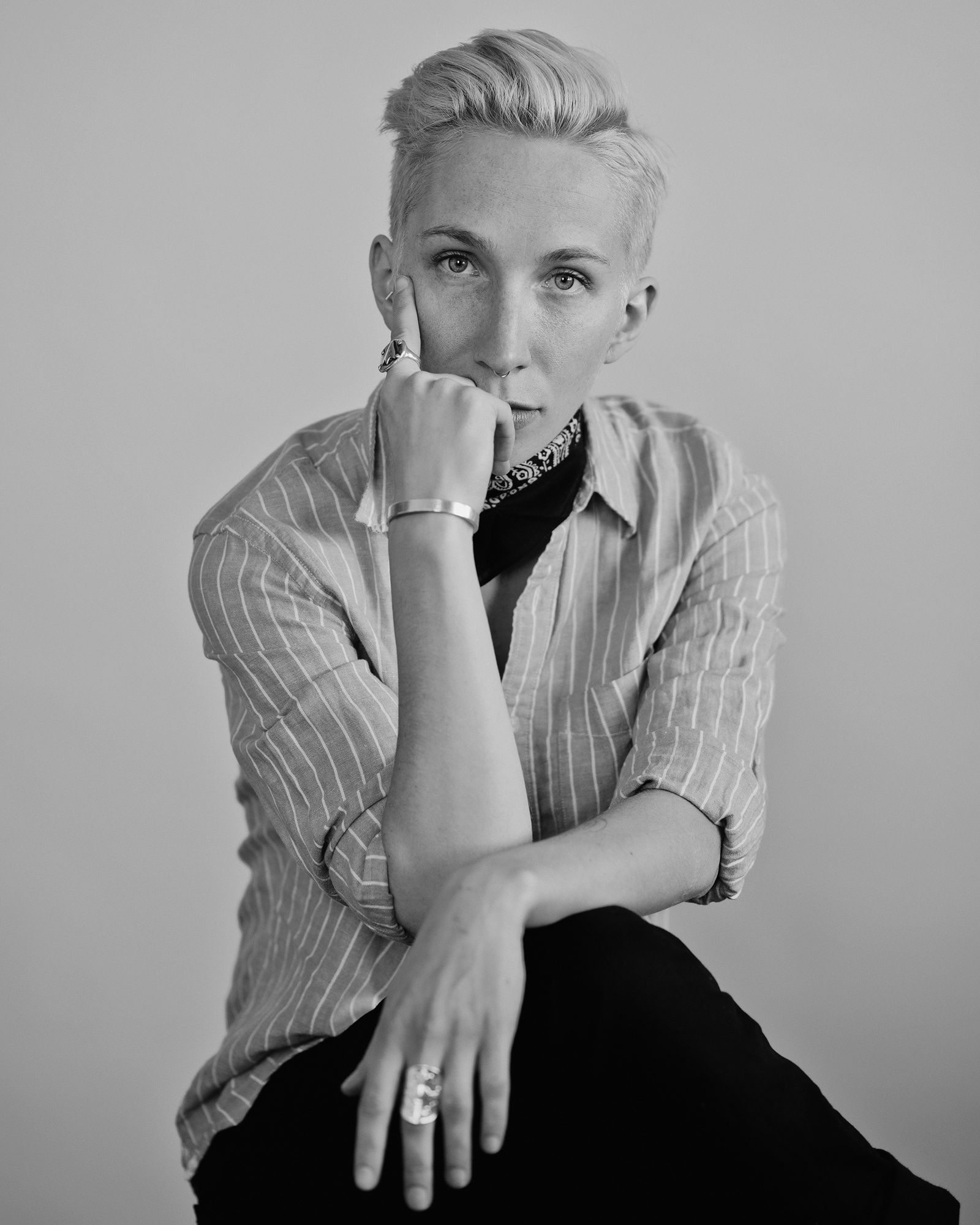
News
‘Deal with the Devil’: Harvard Medical School Faculty Grapple with Increased Industry Research Funding

News
As Dean Long’s Departure Looms, Harvard President Garber To Appoint Interim HGSE Dean

News
Harvard Students Rally in Solidarity with Pro-Palestine MIT Encampment Amid National Campus Turmoil

News
Attorneys Present Closing Arguments in Wrongful Death Trial Against CAMHS Employee

News
Harvard President Garber Declines To Rule Out Police Response To Campus Protests
Self, Parents, and Spectrum: An Interview with IO Tillett Wright
"Darling Days" by iO Tillett Wright (Ecco)

iO Tillett Wright is a writer, photographer, TV host, and LGBT activist. In his upcoming memoir, “Darling Days,” Wright describes his relationship with his mother, the challenges of growing up poor, and his transition from girl to boy.
The Harvard Crimson: What has motivated you to be vulnerable and to write this memoir?
iO Tillett Wright: My motivation to write this book was about the fact that my parents are people who are easily classifiable as certain things. People who were neglectful or irresponsible or took a lot of drugs or drank a lot of alcohol and did a bunch of things that people don’t classically associate with parenting. But one thing that my parents really got right was that they always accepted me for who I said that I was. I think that that’s a very important piece of raising a child to be a strong human in the world… and I wanted that story to be told…. There aren’t a lot of people like me who tell their story openly, so I wanted to add another voice to the conversation so that kids who grow up feeling like they aren’t a part of the mainstream world have more of a home in popular culture.
THC: You identified as a boy for eight years. Then at 14 you chose to identify as a girl again. Now you identify as a transgender man. What were those moments of transition like?
iTW: When I was six, I was just living as a boy. I didn’t switch anything…. And I kind of was forced to pick one, and if I wanted to keep doing the things that I liked to do, like play sports…then I had to be a boy. So I was just like, this is what society associates with the way that I live my life, so I guess I will go with that…And then when I was 14, I got taken away from my mom by the government and had to live in Germany… with my father, and while I was there I hit puberty…. I just didn’t know what it would be like to live as a girl, and I thought maybe that’s what my body was telling me it needed, and so I tried that. But that felt very unnatural and very uncomfortable, and it took me about 14 years to figure out that actually, I’ve been expressing my truth all along. And this last transition has been a very long, slow, gradual—hair shorter and shorter, clothes more and more masculine, eventually trying out pronouns, then asking everyone to use male pronouns, and now exploring the possibility of physical transition.
THC: How did you come up with your idea for the Self-Evident Truths project?
iTW: Self-Evident Truths came about because when Prop 8 happened… when marriage was granted in California and then taken away… I was really struck by that notion that I was legally a second class citizen which I had never faced before…. I never really assessed my legal standing as an American. I was appalled. I thought it was a problem with the lack of familiarity because I couldn’t imagine a person who felt that they were defending some free way of living who would be able to look into my eyes and then tell me that I deserved any less rights than they did. So I thought, people just don’t know each other, and they demonize each other… and I want to introduce them to each other.… I decided that I needed to photograph every different… type of human on the spectrum of gender and sexuality as possible. So I started to photograph 10,000 people in all 50 states, and what better place to display them than the National Mall if you’re trying to make a statement about what it is to be an American.
THC: Do you have any ideas or themes you are afraid that may be misunderstood or misconstrued by your readers?
iTW: I think, again, that people are very quick to decide what type of people others are. And I worry about how they will classify my parents. I worry that people will think that gender is something that people just forever switch in and out of because that’s just my narrative. And in a lot of people’s case what they express as a child is not going to change when they hit puberty…. I don’t want that to be taken as some kind of banner for how that always goes with people who express that they are not the gender that they were born as…. Gender is the most deeply personal journey for everyone. And everyone’s journey is different.
THC: What do you hope people will get out of reading your memoir?
Want to keep up with breaking news? Subscribe to our email newsletter.
